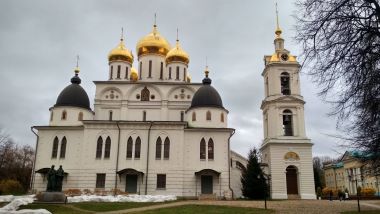 “We then that are strong ought to bear the infirmities of the weak, and not to please ourselves. Let every one of us please his neighbor for his good to edification. For even Christ pleased not himself; but, as it is written, The reproaches of them that reproached thee fell on me. For whatsoever things were written aforetime were written for our learning, that we through patience and comfort of the scriptures might have hope.”
“We then that are strong ought to bear the infirmities of the weak, and not to please ourselves. Let every one of us please his neighbor for his good to edification. For even Christ pleased not himself; but, as it is written, The reproaches of them that reproached thee fell on me. For whatsoever things were written aforetime were written for our learning, that we through patience and comfort of the scriptures might have hope.”
(Romans 15:1-4).
In our July programming we will endeavor to search the connection between the different parts of these verses.
First, the apostle lays down a Christian’s duty- “Let every one of us please his neighbor for his good to edification.” After that he brings forward as the sanction of that duty, the spirit of the Life of Christ– “For even Christ pleased not Himself.” Next, he adds an illustration of that principle by a quotation from Psalm 69: – “It is written, The reproaches of them that reproached thee fell on Me.” Lastly, he explains and defends that application of the psalm, as if he had said, I am perfectly justified in applying that passage to Christ, for whatsoever things were written aforetime were written for our learning.'”
So that in this quotation, and the defense of it as contained in these verses, we have the principle of Apostolical interpretation; we have the principle upon which the apostles used the Old Testament Scriptures and we are enabled to understand their view of inspiration, These scriptures, is one of the most important considerations upon which we can be at
this moment engaged. It is the deepest question of our day: the one which lies beneath all others, and in comparison, of which the questions just now agitating the popular mind– whether of Papal jurisdiction or varieties of Church doctrine in our own communion–are but superficial: it is this grand question of Inspiration which is given to this age to solve.
Our subject will break itself up into questions such as these-What the Bible is, and what the Bible is not? What is meant by inspiration? Whether inspiration is the same thing as infallibility? When God inspired the minds, did He dictate the words? Does the inspiration of men mean the infallibility of their words? Is inspiration the same as dictation? Whether, granting that we have the Word of God, we have also the words of God? Are the operations of the Holy Spirit inspiring men, compatible with partial error, as His operations in sanctifying them are compatible with partial evil? How are we to interpret and apply the Scriptures?
Also, in July we talk about such an important subject as baptism, particularly we need to clarify what is “baptism with Holy Spirit’.
In Christianity, the phrase “baptism with the Holy Spirit” refers to a spiritual experience or initiation in which a person is believed to be filled or empowered by the presence and influence of the Holy Spirit, the third person of the Holy Trinity. It is often seen as a distinct event or encounter that can occur after a person’s water baptism, which is the traditional form of baptism performed with water. The concept of baptism with the Holy Spirit is primarily derived from the New Testament of the Bible, particularly in the teachings and experiences described in the Gospels, the book of Acts, and the letters of Paul. According to Christian belief, Jesus promised his disciples that they would receive the Holy Spirit after his departure, and this promise was fulfilled on the day of Pentecost when the Holy Spirit descended upon the early followers of Jesus.
The baptism with the Holy Spirit is associated with various manifestations, such as speaking in tongues, prophesying, spiritual gifts, and a heightened sense of the presence and power of God. It is often understood as an empowering experience that equips believers for ministry and spiritual growth, enabling them to live more fully in line with God’s will and to bear witness to their faith. Different Christian traditions may have varying interpretations and practices regarding the baptism with the Holy Spirit. Some see it as a one-time event that happens at conversion or shortly afterward, while others view it as a subsequent experience that can be sought and received through prayer and seeking the Holy Spirit’s filling.
We have several projects under development that might be interesting to you. Come and download numerous Christian books, listen to our programs, see several video lessons based on Russian Christian art, look at pictures of beautiful Alaska, the home of our first radio station, KNLS.
Thanks for reading and for listening!


